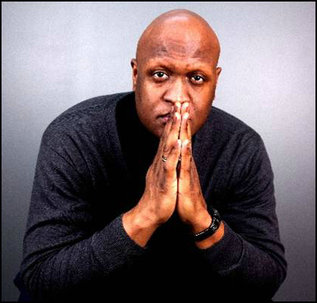I have been fortunate to have been a member of Geographic Educators of Nebraska (GEON) and NCGE since 2012. Association with GEON and NCGE has afforded me the opportunity to grow as a leader, to grasp a better understanding about the trends surrounding geography education, and to have a lasting impact on the community, schools, and children that I serve as Supervisor of Social Studies for Omaha Public Schools in Omaha, Nebraska.
I grew up as a military brat, so we moved across the country every two or three years when I was a kid. This taught me two things that I think are critical to geography: 1. How to learn from and study people that are different from you. 2. How vast and different the world is, depending upon where you call home. So, the social science of geography has always been a part of my existence, but the formal hook on social studies started in high school and crystallized in college. I can remember back to Mr. Pulverenti’s history class (during my junior year at South High) when he showed the class a documentary on the bombing of Hiroshima and Nagasaki during World War II. I never will forget the images of seeing what cancerous repercussions and other inhuman monstrosities came to the survivors of those bombings in Japan. That was intriguing. If there was a question about my love for social studies after that experience, all questions were answered and put to rest after my freshman year of college when I read The Autobiography of Malcolm X. How he used education and the study of history and society to outwit and debate scholars and silence the opposition was overpowering, particularly how his hajj to Mecca and his exposure to “true Islam” was so eye-opening to him because he experienced an enriching culture found outside of his previous context. His transformation led to my own.
I believe geography education possesses keys to our world’s advancement. There is value in all topics of education, but I truly believe at the root of all conflicts in this world and throughout time is a lack of understanding, sympathy, and/or compassion for the human experience of those outside of yourself. As our world’s population continues to boom and technology brings us closer together, we are going to have more opportunities than ever to interact with people who don’t look, sound, or think like us. Geography is the foundation to ensure that when these opportunities present themselves, we are prepared to treat others with respect.
I’ve been the beneficiary of a lifetime of great leaders as mentors that took the time to inspire and guide me. I became a leader by being a good follower and by doing what I feel is best for students. I have been blessed in life to have enough perspective to see what good leaders do and replicate that, and also to see what bad leaders do and avoid that. From my mother, to my pastor, to my older cousin, I have seen how people will follow you if you show that your actions are sympathetic to their needs. I was fortunate enough to be mentored by my predecessor as a social studies leader and GEON steering committee member, Harris Payne. Harris never slept. He was a dutiful leader that had high expectations. He would only hold you accountable to those expectations if he gave you a fair shot to achieve them. He knew for you to succeed he had to provide the tools, instruction, and direction you needed to meet the goals he had for you. That is something that I look to replicate in my leadership style.
I think I am insightful and try to find different ways to do things outside of the traditional or the norm. I research for innovative and thought provoking ideas and practices that help to serve the social studies community and the students we serve. I also do a great job of seeing how resources connect to people, and think about what people are in most need for specific resources. This has led to many geography projects that I have supported while supporting the instructors in my school district. Within my school district, I have focused on connecting teachers and their students with ongoing education, curriculum, and resources that will help to develop a passion for geography, and to foster a more geo-literate population. I have empowered teachers to apply resources that will help them to assess, not only students’ understanding of place and location, but students ability to resolve issues in our local or global community. Our secondary district assessment asks students to examine statistical data about nations, develop an inquiry about this data and then conclude their research by developing a solution or proposing an action. Moving forward, our district will incorporate Global Information System (GIS) technology into classroom instruction. Our goal will be to help prepare our students for a world with the constant evolving presence of technology, as well as career fields that reflect these shifts.
I recommend that people be open and willing to take risks. I once heard Kentucky basketball coach, John Calipari, was upset that his undefeated Wildcat team was not turning the ball over enough. He wanted the team to try new things to take new risks because if they continue to limit themselves to just running the offense as it was written, how could they really know what heights they could reach? I think the same could be said about those who aren’t involved, or are hesitant to get involved with social studies leadership or the NCGE. How can you know what leadership capabilities you possess if you don’t take the risk to lead?
Barry Thomas


